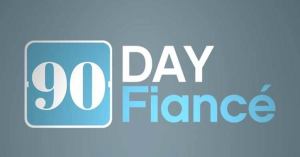Federal prosecutors in Josh Duggar’s child pornography case are reportedly asking the court to demand the disgraced TLC star’s legal team provide detailed information about any “intended” alibi defense. Duggar’s attorneys have claimed other people had access to the wireless internet at his used car lot. They asked the court to dismiss the case, accusing the government of failing to “preserve” any evidence that could be favorable to the defendant. Duggar, 33, was arrested on April 29 and charged with receiving and possessing child pornography.
Prosecutors asked the court to order Duggar to show “any intended alibi defense and that such notice include each specific place where the Defendant claims to have been at the time of the alleged offense,” The Sun reported on Oct. 6. They want specific documents to support Duggar’s alibi “on or about May 14, 2019 through May 16, 2019, between approximately 11:00 a.m. to 7:00 p.m. each day at Wholesale Motors in Tontitown, Arkansas.” The government wants the name, address, and telephone number for each witness Duggar intends to use to back up his alibi.
Videos by PopCulture.com
This request is essentially a challenge to Duggar’s team to provide more evidence to support their claims in the motion to dismiss the case last month. In that filing, they claimed Duggar was not the only person who had access to the internet at his used car lot, reports The Sun. They accused police of failing to keep evidence that may have helped exonerate Duggar during their searches at the business.
The court papers noted that there was another witness interviewed on Dec. 16, 2019, and admitted to investigators that he also worked at the lot and stayed late to use it without Duggar’s permission. “Witness #1 admitted to viewing adult pornography through websites he accessed through the internet on his cellular phone and, when asked by these federal agents, denied viewing child pornography,” the court papers read. Police searched the witness’ phone and found no child pornography, but they were accused of not preserving any evidence from the search.
The court documents also mentioned two other witnesses who had their devices searched by investigators. The defense argued that any evidence obtained from these searches could have helped Duggar. “The devices may have contained content as to whether these devices had any relevant internet search history, any evidence associated with the so-called ‘dark web’ and/or the Bit Torrent network, any metadata that might pinpoint the whereabouts of the devices at various dates and times, and the list goes on,” the documents read. On this basis, the Duggar team asked the case to be dismissed, but the judge denied that request.
Prosecutors allege Duggar obtained mages of child pornography in May 2019. His used car dealership was searched by U.S. Homeland Security agents in November 2019. During a May hearing, Homeland Security Investigations Special Agent Gerald Faulkner claimed Duggar received files showing the sexual abuse of children between the ages of 18 months old and 12 years old. Duggar pleaded not guilty and could be sentenced to up to 20 years in prison and up to $250,000 in fines for each count. His trial is scheduled to start on Nov. 30.





